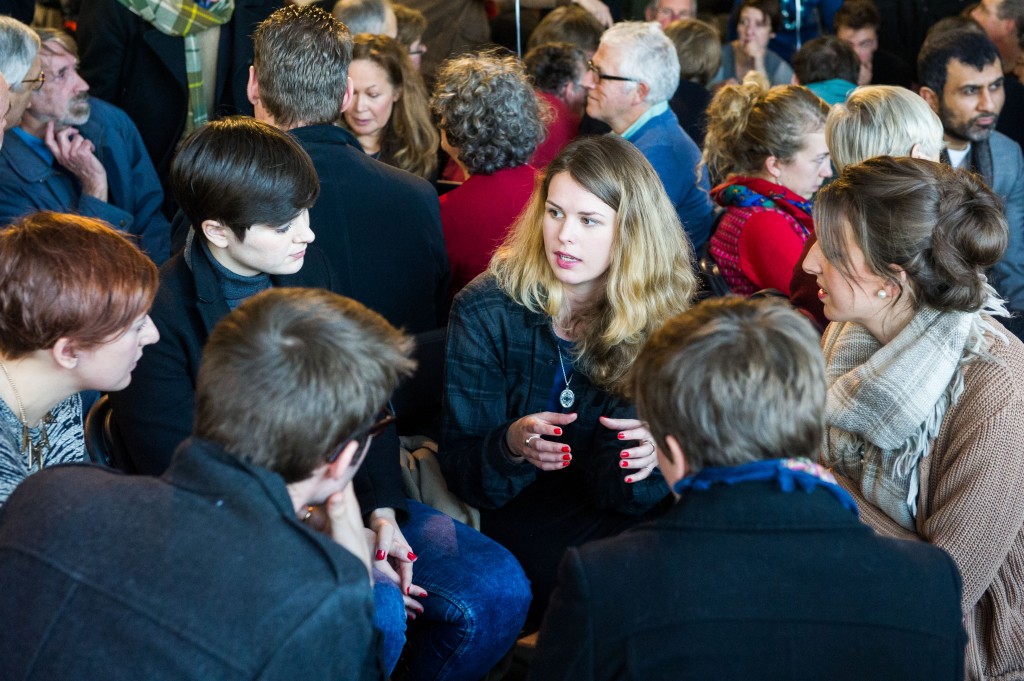During this election, many things changed, if not the Prime Minster. A government of the Right, whose powers will soon be augmented by the transfer of powers from Europe, has secured a significant majority. Both opposition parties are in disarray. What does this mean for civil society? For all those organisations, formal and informal, that exist for social good?
First, there are the ‘business as usual’ things that civil society organisations (CSOs) already do well. Starting with holding government to account. This Government has made some very big and bold promises in the election campaign – new hospitals, more nurses, more police. Now, they have to deliver.

Civil society must continue to bear witness to the impact of policies. This is the daily work of many charities in their front-line role, and it’s vital that we play the experiences of people and communities back to those holding power. They want to be the ‘People’s Government’? Well, this is how it is for people.
Civil society must also keep challenging unfair and discriminatory decisions. Using the law to overturn bad policy is something civil society is getting better at. Boris Johnson was reined in by the courts this year, when his prorogation of Parliament was found to be unlawful. He is now being accused of exacting a ‘vindictive revenge’ on the justice system through his latest package of reforms. Access to justice is something we need to protect, along with democratic freedoms.
Beyond this, there are some new roles. In the cacophony of the ‘information age’, charities and other CSOs can be a trusted source of information and analysis helping all of us sift the spin, and understand what is really going on. While trust in all sectors and professions may be in decline, trust in charities is holding up relatively well. This could be used to good effect.
Civil society could usefully expand into political education, territory it’s not accustomed to inhabiting here in the UK. It’s a role that, decades ago, belonged firmly to trade unions and, for a while, to schools (citizenship education has been all but erased in the last ten years). Some civil society CSOs are already doing this. Economy, for example, and The Advocacy Academy. We should do more.
We should be looking to raise our voice in policy debates. The dominant model of influencing tends to be individual charities lobbying political parties behind closed doors. If we want to set the agenda, not just react, we’ll need to bring our individual voices together to raise the volume. Perform more of a think tank role and make the public case for the changes we exist to pursue.
We should reach out to other sectors too. This is a battle of ideas now and, it doesn’t matter what sector you are in. Many businesses and business leaders are personally and professionally engaged in social good. We’ve got to work together.
It would be great to see more civil society leaders in the media giving comment. Such people have no need to curry public favour – their only ‘agenda’ is the social good their organisations were set up to serve – so they can bring a really clean, fresh perspective to debates. We need to make our leadership much more visible.
Most of all, civil society can help give people a voice. As party membership falls and trust in the political process declines, civil society organisations can step into this void and give people a voice. This is a mantle that community organisers like Citizens UK have taken up, and I would argue it’s time for wider civil society to make its own contribution too.
There are barriers. We face an administration actively seeking to constrain charity ’voices’. It is doing so through measures like the Lobbying Act and so-called ‘gagging clauses’, but also by repeatedly suggesting that charities should stay away from politics. In true Big Brother style, this plays out against a backdrop of official policy and guidance that insists campaigning and social change are perfectly legitimate activities.
We live in a world where social media is now the main forum for public debate, but our ability to speak and debate there is controlled by corporate interests. Charities are reporting their content is being removed by Facebook for being ‘too political’. Twitter has announced a new policy banning ‘political’ advertising.
When politics becomes something only for political parties – or for the Government of the day – then we know we are in trouble. That such efforts are being made to restrict our voice tells us precisely where civil society needs to be. Politics is for everyone. In the simplest of terms, it is where we talk about what matters and what we do about it. Charities are not partisan – by law – but we absolutely belong in politics. Civil society has to step in.
I wrote in the foreword to Compass’s 45˚ Change that civil society hold the keys to tackle both immediate and long-term challenges. This election makes my conviction even stronger.
Sue Tibballs, OBE is Chief Executive of the Sheila McKechnie Foundation with over twenty years experience working at the forefront of the social change sector in the UK.
